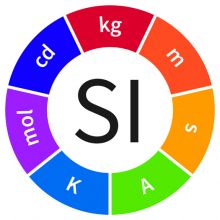Achieving Success in Emerging Markets
18.04.2018

Patients and doctors in emerging markets want more than just high-quality medicines, says Andrew Lane from Abbott
In developed countries, the quality of medicines is consistently good – regardless of whether a medicine is an original formulation or generic – due to long-standing and strict quality regulations. However, this is not always the case in emerging markets, where access to reliable, quality medicines has been inconsistent historically.
The situation is changing, and many emerging markets are implementing stricter guidelines. In 2017, the World Health Organization said one-in-ten medicines in low-and middle-income countries were found to be substandard or falsified, an improvement on one-in-four in 2007.
Beyond quality
In emerging markets, most people pay out of pocket for medicine and so choose the best medicine they can afford. Historically, global companies were able to differentiate from regional competitors by being known for high quality standards and a reliable supply chain. However, as quality standards increase, this advantage decreases. While increasing quality is a good thing for everyone, companies need to lean on more than just high-quality products to earn the trust of patients.
As the quality gap closes, consumers, doctors and pharmacists in emerging markets will look for something more – an added value or additional service. To remain competitive, companies must continuously improve medicines and add services to meet these expectations.
Local insights
The company have been watching this trend for years, and have responded by instilling a culture of constantly looking to improve medicines in emerging markets. How do we do this? It use local insights to understand and anticipate needs, then we scan for technologies that we can apply, improving medicines to make them easier, safer and better.
For example, patients on pancreatic enzyme replacement therapy must take different doses of a drug, throughout the day. However, the various doses are sold in different packs, so it can be difficult for patients to take the right dose at the right time, especially elderly patients.
In response, we developed an innovative bottle to dispense the right dose of Creon at the right time, simply by the push of a button on the cap of the bottle, making it easier for people to take their medicine as prescribed.
Value can also come in the form of services that lead to better overall health outcomes. Our digital service, Knowledge Genie, provides access to news about the latest treatments and techniques from over 3,000 medical journals and 2,000 e-books, as well as daily updates on research and clinical developments. The tool is used by over 160,000 doctors worldwide.
Sustaining growth in emerging markets
Emerging markets provide an undeniable opportunity for healthcare companies. Four of the world’s seven billion people live in emerging markets, and, over the next five years, emerging markets are expected to nearly double their spending on medicines. The companies who will be successful are those that understand how the landscape is forming and look to the future to see that people in emerging markets want improved medicines and services.
Materials from eyeforpharma.

